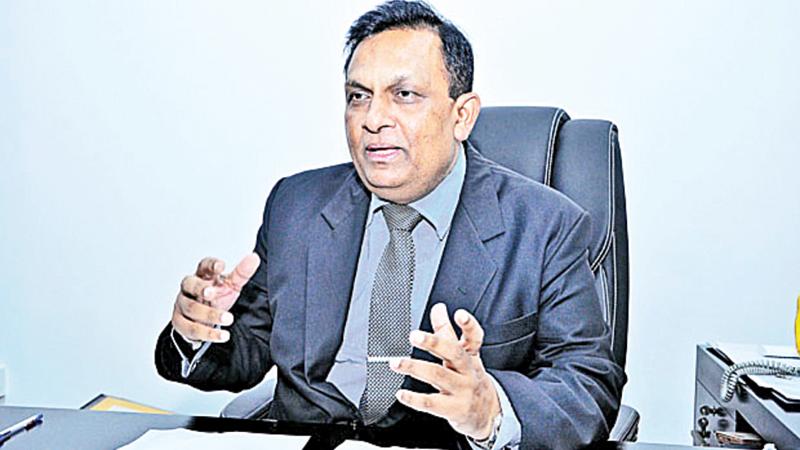
The draft amendments to the asset declaration, bribery and commission laws will be presented to the Oversight Committee on August 9 and thereafter, it will take the course towards enforcement of the laws, Director General of the Commission to Investigate Allegations of Bribery or Corruption (CIABOC) Sarath Jayamanne told the CA Sri Lanka–SAFA Forum on the ‘Role of Finance Professionals in Combating Bribery and Corruption’ in Colombo last week.
He said after the laws are enacted which will give more teeth to CIABOC and with the implementation of the National Action Plan (NAP) for Combating Bribery and Corruption in Sri Lanka asset declaration by ministers and members of Parliament will have to be made before the asset declaration directorate under the NAP.
“We will recruit around 200 investigation officers and around 50 prevention officers. All these measures will directed towards combating bribery and corruption which will help create a just society in the country,” Jayamanne said adding that political leaders want only to see others being nabbed and taken to ask but do not want to implement the laws to curb bribery and corruption.
Financial sector experts said asset declaration is the last thing politicians will want to do as it exposes their wealth. Very few politicians in Sri Lanka have declared their assets as MPs and as Ministers. Most conceal their actual status of wealth to amass more before they are rejected by the people.
State Minister of Finance Eran Wickramaratne said not a single minister or parliamentarian under the Mahinda Rajapaksa regime declared their assets other than amassing wealth indulging in broad daylight bribery and corruption.
The Rajapaksa administration did not care too hoots about assets declaration. Ministers and MPs who plundered the country to the maximum going to the extent of stashing wealth in safe havens overseas running into billions of dollars.
Finance Minister Mangala Samaraweera said when the current government came into power, Mahinda Rajapaksa had funds amounting to around US$ 18 billion stashed overseas.
“It is not only the public service even the private sector is corrupt. All those who indulge in corrupt practices will be monitored and penalised once the amendments to the laws to combat bribery and corruption are effective,” Jayamanne said, adding that the cost of bribery and corruption globally is over US$ 2 trillion and to Sri Lanka it is over Rs. 100 billion while to the economy is around US$ 85 billion.
He said steps have been taken to make asset declaration online with the support of the Information Communication Technology Agency (ICTA) which will help minimise human intervention to combat bribery and corruption.
‘There are two types of people, those who corrupt the system and those who are corrupted by the system. The first group should be dealt with applying laws, rule and regulations pertaining to accepting bribes in the form of gifts and commissions and the second group by reducing human intervention which will help reduce corruption in both public and private sector to a great extent.
Financial professionals reiterated the need for effective and expeditious processes to combat bribery and corruption.
“Asset declaration must be made public if politicians are to serve the public. One should not accept position as ministers and even in the public and private sector if he or she cannot declare assets,” State Minister Eran said adding that as in the case of the bond scam forensic audits take a lot of time and the process in complex.
He said this also applies at times to judicial processes which help people to induksge in corrupt practices adding that the present government has done a great deal to minimize bribery and corruption by saying no to white van disappearances, torture, grabbing of state resources, political favourations leading to tax evasions and nepotism .
Panelists at the forum said that financial professionals are well placed to detect and combat bribery and corruption in all sectors in the country.
The NAP for Combating Bribery and Corruption formulated by CIABOC was launched by President Maithripala Sirisena this year.
“The NAP was drafted following wide consolations and it is premised on four strategies to combat bribery and corruption in the country. They comprise preventive measures, value-based education and community engagement, institutional strengthening of CIABOC and other law enforcement agencies and law and policy reforms.
Four handbooks , will be released along with the NAP, exploring decisive factors which would shape the course of combating bribery and corruption in the nation.
The 4 handbooks such as Draft Proposal on Gift Rules, Draft Proposal on Conflict of Interest Rules, Integrity Handbook for State Officials and Law Amendment Proposal for areas of Bribery, Asset Declaration, Commission Act, Election Campaign Finances and Whistle-blower provision were launched along with the NAP.
The most common forms of corruption include facilitation payments paid to avoid bureaucratic red tape, bribe solicitation by government officials, nepotism and cronyism.
High level of corruption is also reported in the public procurement sector.
The main laws dealing with anti-corruption are the Penal Code and the Bribery Act which criminalize corruption and attempted corruption in the form of extortion and active and passive bribery.
However, there is no clear distinction between bribery and facilitation payments, but gifts given with a corrupt intent are prohibited under the Prevention of Corruption Act. While measures have been taken to enforce anti-corruption laws, enforcement remains constrained by a lack of resources and technical expertise, and powerful political elites often go unpunished for committing crimes.
